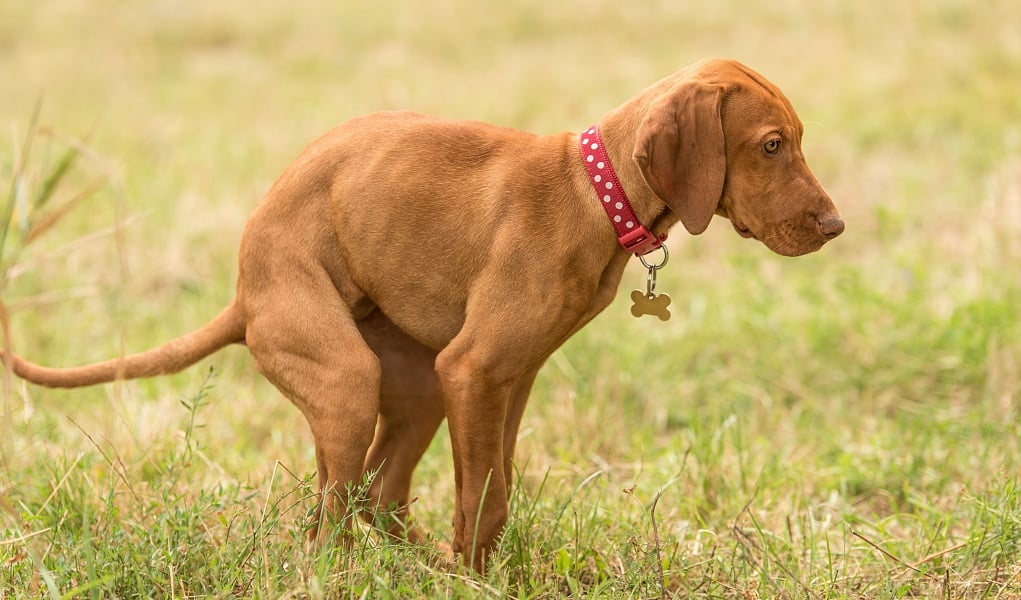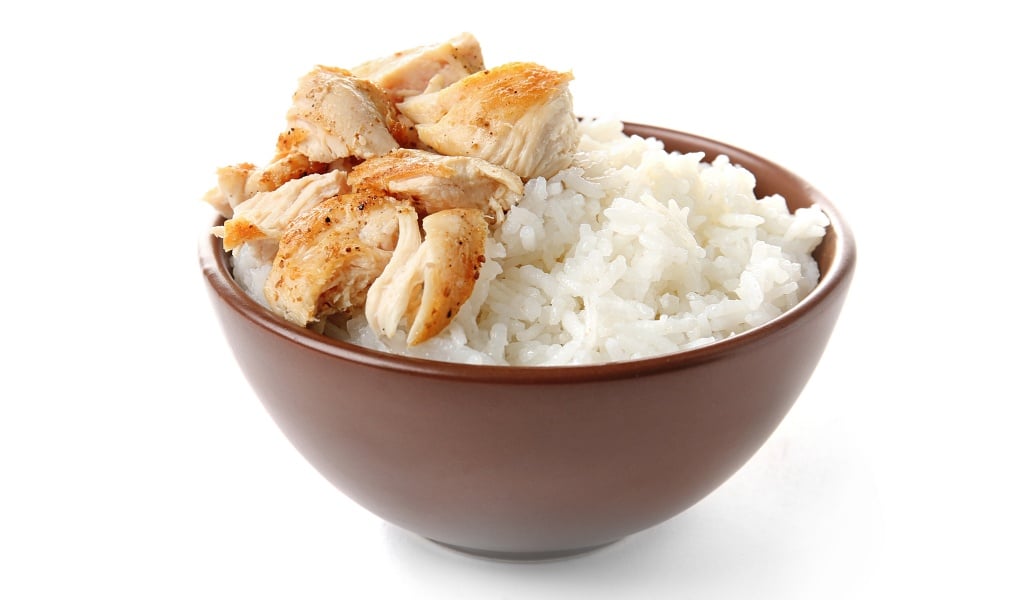None of us like to talk about it, but we've all dealt with it. Diarrhea in dogs is a very common issue, and it's not usually something that you should worry about. This problem is usually caused when your pet eats something that doesn't agree with his digestive tract. It usually goes away on its own, but these home remedies for dog diarrhea can help speed up the process.
Diarrhea in dogs is a condition that varies in intensity, frequency and duration depending on the dog and the underlying cause of the diarrhea. It is best to call your veterinarian's office if your dog suffers from diarrhea for more than 24 hours. They can help you decide if you should bring your dog in for an exam, try a home remedy or just let the issue run its course.
Diarrhea in dogs must be taken seriously. You'll need to observe your pet closely until his stools begin to harden. Regular diarrhea or a bout that lasts longer than few days requires a vet's attention. If your pup has a mild case, you can use these home remedies for dog diarrhea to save your pet a trip to the vet.
Home Remedies for Dog Diarrhea: 4 Quick Fixes
 First thing is first, you need to make sure your dog has no other symptoms of illness aside from diarrhea. Symptoms to keep an eye out for, include:
First thing is first, you need to make sure your dog has no other symptoms of illness aside from diarrhea. Symptoms to keep an eye out for, include:
- lethargy
- fever
- coughing
- abdominal pain
- mucus or blood in the stool
- vomiting
If you notice any other symptoms accompanying the diarrhea, call your veterinarian immediately. It's not likely, but diarrhea could be a sign of a more serious health problem. If you notice any other symptoms, it's best to contact your vet and explain what is going on. They can help you decide what the next best step will be.
If you've received the green light to try some home remedies for dog diarrhea, the following fixes may help firm up your pup's stool.
1. Twelve Hour Fast
Your pet should not be eating anything for the first 12 hours after you've noticed that he has diarrhea. It's important to give the digestive tract a break and allow it to settle before making it process any more food.
Intermittent fasting is safe for dogs when done for a short period of time. All foods and snacks should be avoided completely. However, you still want to make sure that your dog is drinking water or he could become dehydrated in a matter of hours.
You may want to consider adding bone broth, chicken broth or beef broth to your dog's water, which will entice him to drink.
When dealing with diarrhea in a dog, observe your pooch for signs of dehydration like decreased urine output, dark urine, urine with a strong odor and lethargy. Dehydration is a real risk during bouts of diarrhea, and if you think that your pup may be dehydrated, you can check by pinching the skin on the back of your dog's neck. If the skin doesn't return to normal immediately, your dog is likely dehydrated.
2. Probiotics
If your dog has diarrhea, you can give him some probiotics to help his digestive system reset itself and heal. Probiotic capsules can be added to your dog’s food. You can find commercial probiotics in supplement form, powder form or soft chews. These products are available in pet stores and the pet section of many big box stores.
You can also give your pet some plain yogurt to get the probiotics into his digestive tract naturally. Yogurt is high in calcium and protein. Just be sure that you choose plain yogurt with no added sweeteners (natural or artificial).
Probiotics are a great supplement to add to your dog's daily diet. If your pet has frequent trouble with diarrhea, probiotics can help solve the problem.
ALSO: Dog's Digestive System Breakdown (What Dogs Can and Cannot Digest)
 3. Gradually Introduce a Bland Diet
3. Gradually Introduce a Bland Diet
Don't switch to regular dog food immediately once your pup has finished his 12-hour fast. Start with a bland diet instead. The best bland diet ingredients for dogs are plain chicken breast and plain white rice.
After the initial 12 hours of fasting, feed your dog a 50/50 mix of plain boiled (or steamed) boneless chicken and plain cooked white rice. Feed this recipe until your dog's stool consistency returns.
Feed about 1/2 cup of this bland food for every 20 pounds of your pet's body weight. Instead of sticking with standard 2 meals per day, it's better to break the quantity up over 4-6 small meals per day to make it easier on the digestive tract.
If your dog vomits after eating, or if you begin noticing any other symptoms, stop feeding the chicken and rice recipe and seek veterinary care immediately.
4. Slowly Switch Back to Regular Diet
Once your dog's stool firms up and returns to normal, you can gradually resume his regular diet. At first, feed him multiple smaller meals to slowly get the digestive system used to the regular food again.
If you don't notice any symptoms after returning to regular diet, then there's nothing to worry about. However, if your pet experiences diarrhea again, there could be several causes including allergies, GI problems or something more serious. If your dog gets diarrhea again soon after recovering from the first bout, you'll need to see a vet immediately.
READ NEXT: What To Give A Dog with Upset Stomach – 10 Remedies for All Dogs












